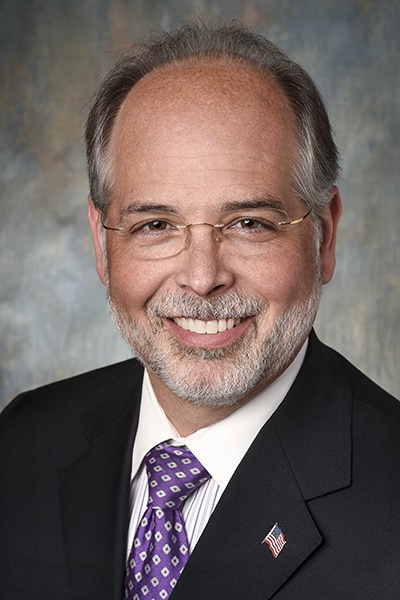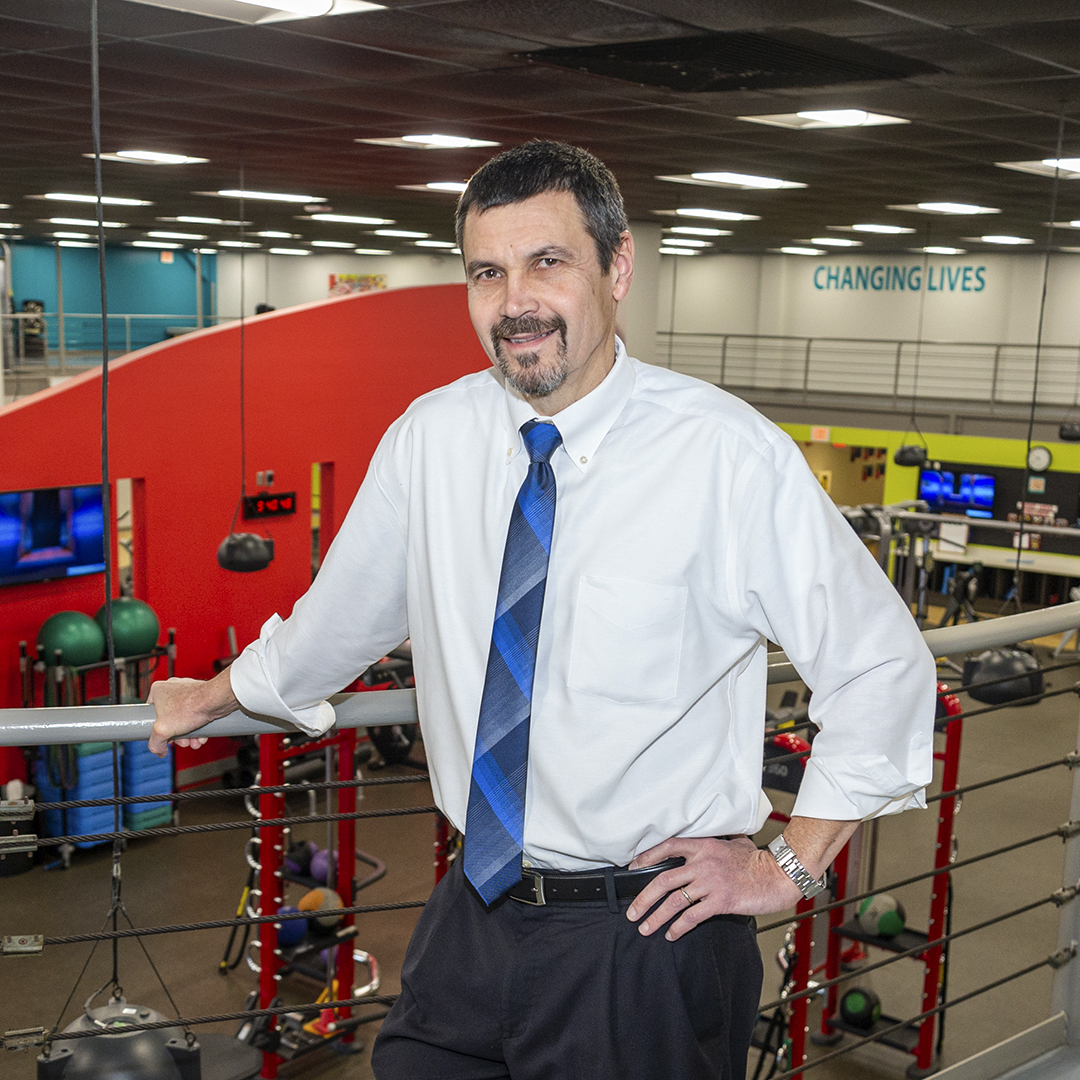Paul Lambrecht started his career as a paramedic in 1987 at Woodbury, New Jersey-based Underwood-Memorial Hospital, so it’s no surprise that patient safety is of chief concern to him. When he found himself with an opportunity to step into management in 1992, he gladly accepted a role as director of paramedics knowing he could make more of a difference.
From there, Lambrecht found several opportunities to take on additional clinical areas, and by 2001, he was overseeing the paramedic program, emergency department, respiratory care services, and was involved in other interdisciplinary initiatives such as quality teams and safety management.
In 2006, he advanced into hospital administration, becoming vice president of clinical services, before the 2012 merger of South Jersey Healthcare and Underwood-Memorial Hospital. This union became Inspira Health Network, the region’s leading network of healthcare providers, delivering the full continuum of primary, acute, and advanced care services.

Today, Lambrecht serves as vice president of quality and patient safety for Inspira.
Under Lambrecht’s realm, his departments are responsible for quality and patient safety, infection prevention, and accreditation/regulatory affairs. He also serves as the management staff to the quality and patient safety committees of the hospital and network boards of trustees.
“When we came together as a network in 2012, we had a lot of conversation as we developed our strategic plan around what’s going to define Inspira and how we were going to set ourselves apart from the competition,” he notes. “It was important to us how we were going to define what Inspira stood for to our patients.”That meant patient safety and high-quality care were right on top of that list, and Lambrecht began thinking about how to take those programs to the next level.
“We had come to the merger with successful quality and patient safety programs, so we wanted to look at how to leverage that work and take it to the next level,” Lambrecht shares. “At that time, the president of the Joint Commission had written an article that highlighted high reliability work. I had done some research on high reliability in other industries and thought about how to apply that to healthcare.”
In August 2015, Inspira made the decision to move forward and begin the transformation into a high reliability organization.
“I began talking to other hospitals in the region who had done this work, and who they worked with to accomplish it, and that’s how we decided on engaging with Healthcare Performance Improvement (HPI),” Lambrecht says. “High reliability is not something that’s successful as a grassroots type of effort; it really needs to be top-down driven to set the expectation that zero is the right number, and our goal is to eliminate patient harm.”
At the outset, Inspira needed to come up with a baseline of safety event measurement, and looked at a three-year snapshot of safety events that occurred throughout the organization to get a feel for where errors were occurring and how to best build the safety tools that would ultimately be used across the network.
“One of the initial strategies was to engage the frontline providers and the frontline staff,” Lambrecht explains. “If we just put together a program that we would roll out and teach everybody, there would not be a lot of buy-in. But by bringing the frontline staff, leaders, and physicians to the table and engaging them to help select and build the tools we would use going forward, that would add credibility to what we were trying to achieve.”
“High-reliability is not something that’s successful as a grassroots type of effort; it really needs to be top-down driven to set the expectation that zero is the right number, and our goal is to eliminate patient harm.”
Beginning at eight o’clock each morning, Inspira conducts daily safety briefings across the network , so leaders and staff can gain situational awareness of any issues that have occurred or are anticipated for the day. Significant safety issues may result in “starting the clock” which would require follow up or resolution of the issue by a set time that day.
“By ten o’clock every morning, there is complete situational awareness of where our safety risks are across our entire system,” Lambrecht says. “While that might seem like a big thing, it’s little incremental parts of that process which gives us our awareness. And with any risks identified, immediate action can be taken and we know what the resolutions are.”
Inspira prescribes to safety absolutes known as “Red Rules,” and if anyone observes them being violated, the staff are able to stop the process.
“One of our ‘Red Rules’ is patient identification. Our policy is we use two patient identifiers to confirm positive ID with every patient interaction,” Lambrecht says. “Whether it’s a food service aid brining in a tray at lunchtime or a phlebotomist in the lab coming up to collect lab specimens, we’re always checking the two identifiers constantly. That allows for a heightened awareness and makes for a safer environment.”
One of the tools Inspira promotes is SBAR, which stands for situation, background, assessment, and recommendation. Lambrecht notes it’s a structured way for a staff member to summarize the message they want to send and helps with timely and effective communication.
They also use an ARCC tool, which stands for asking a question, requesting a change, voicing a concern, and using the chain of command. This tool allows staff to safely escalate a concern using the lightest touch possible.
These safety tools are all in place at Inspira’s new Mullica Hill medical center, a 210-bed acute care community hospital which opened on December 15, 2019. Lambrecht notes these principals are critically important for ensuring the new center is as safe as possible.
“Our goal is to continue to grow and sustain the work we’ve done,” Lambrecht says. “Over the course of four years, we have successfully reduced serious preventable harm by 90 percent. That’s something we are very proud of; however, the work is never done. Our goal is to get to zero harm.”
BAYADA is a joint venture partner of the Inspira Health Network, creating solutions for post-acute care needs across a wide spectrum of services. Our expertise in home health, hospice, and pediatric nursing, delivered across 360 offices nationwide, helps address the complex problems health systems and patients face at home.

